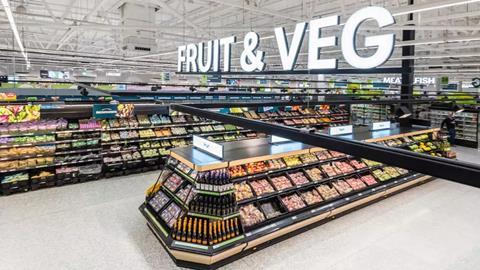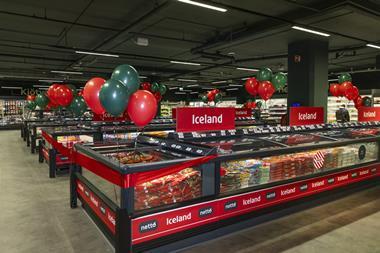It’s stating the obvious to say that Asda’s succession of bosses have had a lot on their respective plates in the past two years, so maybe there is some excuse for health not being their top priority.
But even giving them the benefit of the doubt, today’s announcement that the supermarket is launching trials at 10 of its stores in a bid to reduce barriers to health and encourage customers to make healthier choices comes across as massively underwhelming.
It was back in September 2023 that Asda launched its partnership with the health nudge group, Nesta, with which it has drawn up the latest plan. At the time it generated a lot of excitement about the supermarket’s ambition to move the dial on health, not least because it also took the controversial step of aligning itself to calls for mandatory reporting on the healthiness of products in supermarkets.
There followed a call last spring from chief commercial officer Kris Comerford for suppliers to help Asda hit a new target for health based on the government’s nutrient profiling model.
Was this the start of a genuine and important attempt by the supermarket to really push the heath agenda, despite its ongoing problems elsewhere?
Pushing the health agenda
At the time it seemed strange that despite its target of improving the health score of a typical Asda customer’s basket, based on the government’s nutrient profiling model, Asda did not set a formal target.
Now, more than a year on, it seems even more disappointing that the next stage of its health plan involves a paltry 10 stores, introducing nothing that is genuinely going to raise the bar. And still with no overall target published.
Asda says its new trial, which was announced today, will include the introduction of healthier choices in snacking aisles, featuring products that are high-fibre and below 100 calories, with more prominent placing for healthy choices like dried fruits and nuts at checkouts.
The supermarket has said it will also look at how it can use its Rollback initiative in those stores to see how making healthier food cheaper can boost sales across its snacking, frozen and fresh produce categories.
It even talks about using promotional aisles to promote healthier products.
But as the in-store HFSS promotional ban has now been running since October 2022, surely the supermarket should be much further down the track than this?
The danger is that Nesta’s partnership with Asda, which is due to run out in September, will not live to see the day when these initiatives are rolled out at the sort of scale that is needed to effect genuine change.
The supermarket influence
It’s particularly frustrating when research from Nesta itself, based on Kantar sales figures, has just this week revealed that relatively minor changes to shoppers’ baskets could achieve an 8.5% reduction in calories, such is the influence of what is on sale at the supermarkets.
Nesta’s research suggests nearly 90% of our calories come from food prepared in the home, with the 11 largest retailers responsible for 95% of the grocery market.
So why hasn’t more been achieved in the time since the government started to get tough on HFSS?
This week Tesco, which has set a target for the healthiness of its product range, released figures of its own suggesting that 64% of its products were on track to achieve the target of 65% by December this year.
At least Tesco has set a target, but there is still so much more that could be done.
Frustratingly, this is not down to retailers. As The Grocer has previously revealed, plans have been pretty much in place for well over a year for a system that would see all major food and drink companies report on the percentage sales of HFSS foods, fruit & veg, and types of proteins (animal and plant).
Not only have the plans, which have been in the works since at least September 2023, been supported by health campaign groups (even if they would prefer to see them enshrined in regulation) but they also carry the backing of major supermarkets, because they would provide the level playing field that has long been desired.
Delays and uncertainty
It was always inevitable that a new government coming into power would lead to delays and uncertainty over how this work would continue.
But it’s now getting on for six months since the government revealed its Food Strategy, which set one of its ambitions as tackling the UK’s “skyrocketing” levels of obesity.
Surely it doesn’t need a whole new series of meetings with industry bosses of the strategy’s panel to press go on oven-ready measures such as standardised reporting on health.
These policies, which would have widespread support across the political divide, need to be dusted off and brought in urgently, along with sorting out the confusion over the HFSS advertising ban – another policy all sides apparently agreed on, which descended into chaos.
But it doesn’t really matter if supermarket reporting is made mandatory or not. Once a system is agreed peer pressure will do the rest and companies like Asda will have to report on their health targets.
Then, instead of these limited trials, we will begin to see the sort of widespread changes to consumer baskets that can finally start to turn the tide on obesity.




















No comments yet